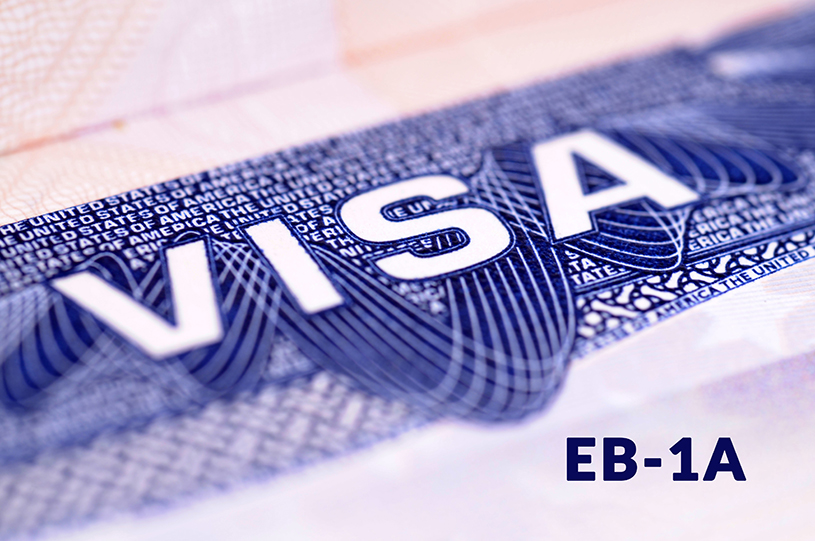Reference letter Q & A for Employment-based Immigration

I’m an engineer from India currently working in the United States on an H-1B visa. I am in the process of applying for an EB-1A green card and have a few questions regarding reference letters from my current employer.
1) Is it necessary to get a reference letter from my current employer for my American green card/visa application?
2) How can I ask my current employer for a reference letter without jeopardizing my current job?
3) What should I do if an employer is reluctant or refuses to provide a reference letter for my green card/visa application?
4) Are there alternative sources for reference letters if I cannot get one from my current employer?
5) How important is a reference letter from a current employer compared to those from previous employers or colleagues when applying for an American green card/visa?
6) Do you need to get a reference letter for a job that you just started at?
I would greatly appreciate your guidance on these matters, as I am concerned about the potential implications of requesting such letters from my current employer. Thank you for your time and assistance.
Thank you for your inquiry. I get emails, direct messages, and phone calls with similar questions all the time. Typically, it is impossible if not impractical to answer them all outside the context of a full consultation. However, in this case I will attempt to give some general guidance (not legal advice) that I hope applies to your case and many others. This advice is not only relevant to immigration matters but can also be applied to employment in general.
I generally recommend a reference letter from your current employer (if possible) for almost all employment-based petitions and even some family ones as well. Showing you are currently employed and therefore currently in demand is almost a given to show the proper qualifications for most work visas or green cards. At a minimum you should be able to obtain documentation to verify your current employment and how long you have been working in that job. How can you ask for this? Have some sort of template or outline they can use so they can save time. Give them some guidance and structure on what you hope to see. Your attorney can help.

You can be more conservative and simply ask your employer for a reference letter just to have in your back pocket as you never know with downsizing, layoffs, and economic downturns. It is easier to ask for a letter when you are employed than after you are let go (or worse terminated). You could go a little bit farther and tell employer that your eventual dream is to work in the United States and that the process, if successful, will take at least several years. With employers realizing that nobody stays in the same job forever, there should be nothing wrong or surprising with a dependable highly skilled employee eventually looking at or planning for their future options.
If your employer is reluctant to provide a reference letter I do have a few tricks or suggestions. Suppose they are hesitant to put anything on letterhead or through official channels, you can always ask for a letter that is more of a personal than company endorsement. You also don’t have to get the highest-level person you report to. A mid-level manager who knows you better or is more receptive to your request is another possibility. Another option is to ask a co-worker instead of a supervisor. While this endorsement may not have the same weight it is still better than providing nothing at all. On the bright side, a colleague may know you better and be able to describe more specific examples of your talent and skills. You could also ask for someone in your field, profession, or industry at another company who knows your work record and can independently verify who you are and what you have done at your job.
If you just started at a new job having a letter of reference from that employer may not be as necessary as if you have worked there for years. Also, asking for a letter of reference during the first year or so at a new job is not usually a good look so use discretion. Know your audience. You know who are your friends and supporters are at your place of work. Some of them will have your back and always be there to help you advance your career. Approaching them is usually not all that challenging.
When applying for an EB-1A, EB-2 NIW, O-1, L-1, E-2, or H-1B you sometimes have to think outside of the box in your evidence. We all have ideal references that we “wish” to have but even if you know you can get such letters how long will it take to get them? People may be hard to reach, busy, or initially be reluctant to provide you with what you need. What do you do then? How long are you willing to wait before you ultimately seek other options? If you have a filing deadline, like for an H-1B visa, you may not be able to wait until they provide you with your letter.
Even if you have a timeline you want to meet for your EB-1A or EB-2 NIW you have to decide how important this one letter is to your case. Is it worth delaying your petition until you get this letter? Does this one letter make or break your case? These questions are dependent on your case, and an immigration attorney will be able to help you answer them.
In conclusion, there are no simple or easy answers to which letters you should and shouldn’t include. Most would recommend that you reach out to many potential references well ahead of time to make sure that enough of them are willing and able to assist you in your petition. In general, it is better to have more options or more choices than less. Letters of reference are an important part of any employment-based immigration application. However, don’t forget, you may even find them useful for marriage-based petitions as well. Good luck!
This article does not constitute a solicitation or provision of legal advice and does not establish an attorney-client relationship. The answers provided should not be used as a substitute for obtaining legal advice from an attorney licensed or authorized to practice in your jurisdiction. You should always consult a suitably qualified attorney regarding any specific legal problem or matter on time.
About the Author:
 U.S. Immigration Attorney Seth Finberg is a 2005 graduate of the University of Georgia School of Law. Seth is a member of the Georgia Bar, the American Immigration Lawyers Association (AILA), and serves on the Business and Investment Committee for the South Florida chapter of AILA. Mr. Finberg is the owner and founder of South Florida based Finberg Firm PLLC and he represents clients nationwide and internationally in business, employment, and investment immigration. He can be reached by phone at (305)-707-8787 or by email at seth@finbergfirm.com or www.finbergfirm.com.
U.S. Immigration Attorney Seth Finberg is a 2005 graduate of the University of Georgia School of Law. Seth is a member of the Georgia Bar, the American Immigration Lawyers Association (AILA), and serves on the Business and Investment Committee for the South Florida chapter of AILA. Mr. Finberg is the owner and founder of South Florida based Finberg Firm PLLC and he represents clients nationwide and internationally in business, employment, and investment immigration. He can be reached by phone at (305)-707-8787 or by email at seth@finbergfirm.com or www.finbergfirm.com.































